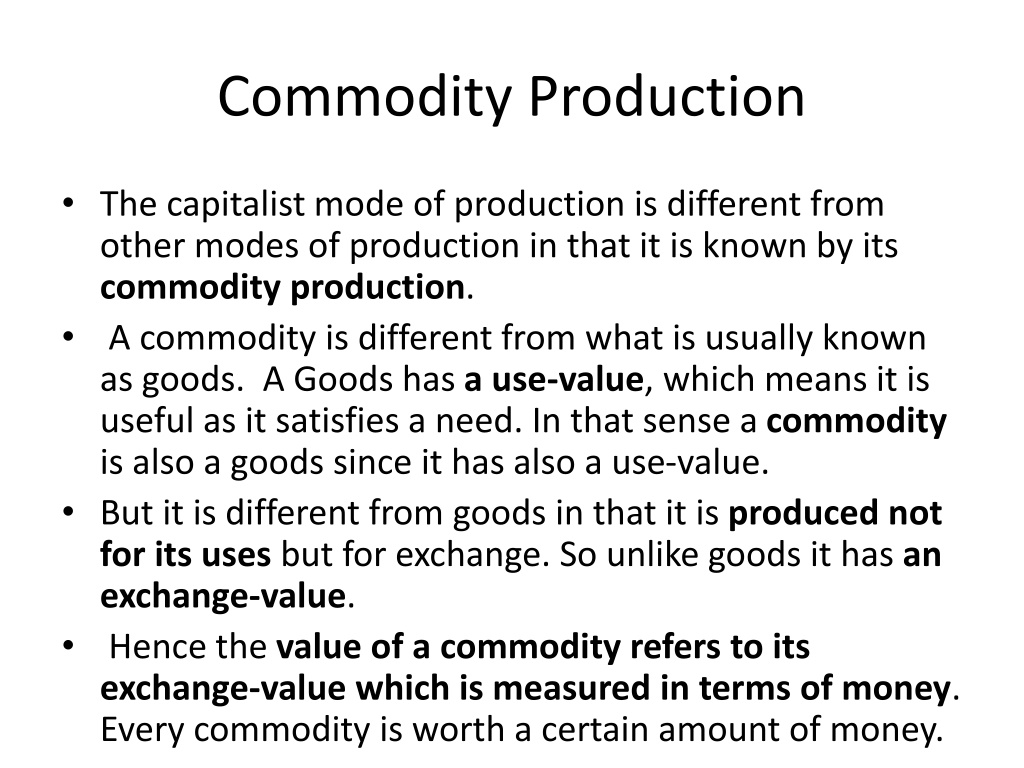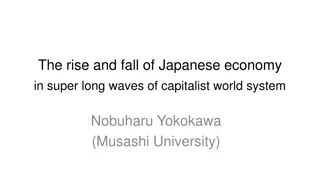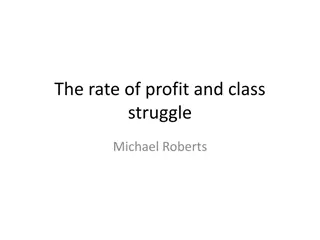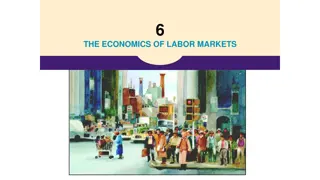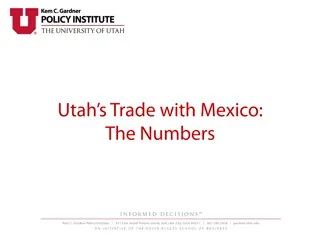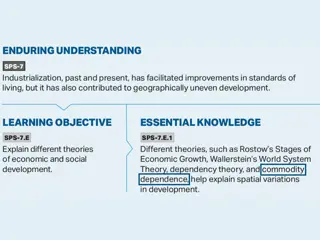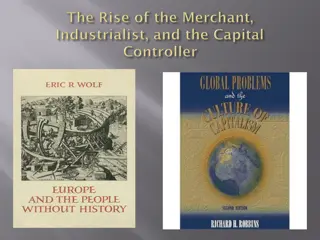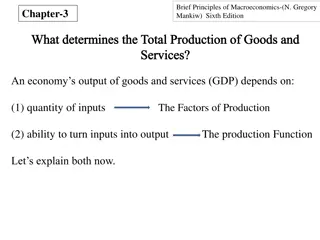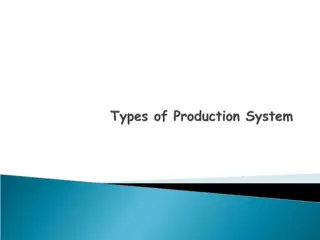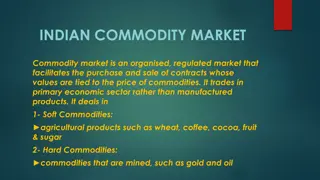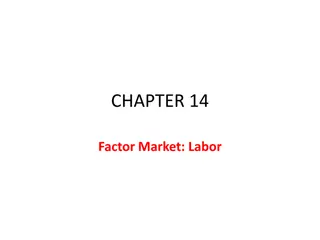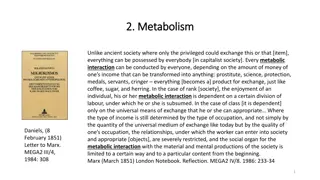Understanding Commodity Production and Labor in Capitalist Mode
The capitalist mode of production is characterized by commodity production, where goods are produced not for their use but for exchange. The value of a commodity is determined by its exchange value, measured in money, which is influenced by the quantity of labor involved in its production. Labor, being common to all commodities, plays a crucial role in determining value and wages. In capitalist societies, labor power becomes a special commodity that workers must sell to make a living, with its value determined by the amount of labor time spent producing it.
Download Presentation

Please find below an Image/Link to download the presentation.
The content on the website is provided AS IS for your information and personal use only. It may not be sold, licensed, or shared on other websites without obtaining consent from the author. Download presentation by click this link. If you encounter any issues during the download, it is possible that the publisher has removed the file from their server.
E N D
Presentation Transcript
Commodity Production The capitalist mode of production is different from other modes of production in that it is known by its commodity production. A commodity is different from what is usually known as goods. A Goods has a use-value, which means it is useful as it satisfies a need. In that sense a commodity is also a goods since it has also a use-value. But it is different from goods in that it is produced not for its uses but for exchange. So unlike goods it has an exchange-value. Hence the value of a commodity refers to its exchange-value which is measured in terms of money. Every commodity is worth a certain amount of money.
Labour: Common to all Commodities The question that arises here is how to compare different commodities with each other in value. According to Marx commodities can be so compared just because they do all involve a common thing the relative amount of which alone explains why one commodity has a higher and another has a lower exchange-value. All commodities are products of human labour. Thus the value or the rate at which commodities exchange is determined by the quantity of labour involved in their production.
Labour Time The quantity of labour, on its part, is measured by the extent of its duration, that is, the labour time. But this does not mean that if an article is produced more lazily, the grater will be its value. Marx makes it very clear that the determinant of the value of a commodity is the amount of labour socially necessary, that is, the amount of labour time socially necessary for its production.
Labour: A Special Commodity The capitalist wants to turn his commodity into an unending process of profit-making. The capitalist tries to augment exchange value by constantly throwing it afresh into circulation. He wants to get more value for himself in proportion as he puts more value on the market. Marx argues, this becomes possible because the capitalist finds available on the market a special commodity and that special commodity is labour. In a capitalist society since the worker does not own the means of production he owns nothing except his capacity to work, that is, his labour power. The worker has no choice but to sell this labour power for wages to make a living.
Value of Labour Power Determined by Labour Time Thus to the worker this labour power is a commodity and it is the only commodity which s/he possesses and can offer for sale. A pertinent question here is what determines the amount of wages paid to the worker, that is, at what rate does the labourer sell the only commodity s/he possesses. The labour power, being a commodity, like other commodities its value is determined by the amount of labour time spent in producing it. The time spent in securing food, shelter, clothing and other things which are necessary to keep the worker in his/her normal state as a laboring individual while maintaining the family, is to be counted in the labour time spent in producing the labour power.
Labour Power Creates more Value than is given in Exchange It means, for his/her labour power the labourer gets just as much wages as are necessary for the maintenance of worker and his/her family. In this process of selling the labour power the worker in a capitalist mode of production always loses. This commodity (labour power) is a very peculiar commodity as unlike all other commodities it can create more value than is given in exchange for it. It creates surplus value which invariably becomes the property of the capitalist. That is to say, when the worker sells his labour power for wages he sells it not merely for the time necessary to produce the value of his wages, which is necessary for procuring the means of subsistence for himself and his family; he actually sells it for the length of the full working day.
Wages Constitute only a Part of its Full Value For an example, if the working day is ten hours and the labour time necessary to produce the value of labourer s wages is six hours, then for the remaining four hours the worker is working not for himself, but for his employer. So the first six hours represent the necessary labour time and remaining four hours signify the surplus labour time. Thus when a commodity is produced by means of ten hours labour by workers, wages given to workers constitute only six-tenth of its value and the remaining four-tenth of its value represents the surplus value.
Unjust Appropriation of Surplus Value The surplus value which, in all fairness, should have gone to the workers, is appropriated unjustly by the owners of the means of production. Thus, in a capitalist society, commodity production thrives on an unjust appropriation of surplus value by the capitalist.
